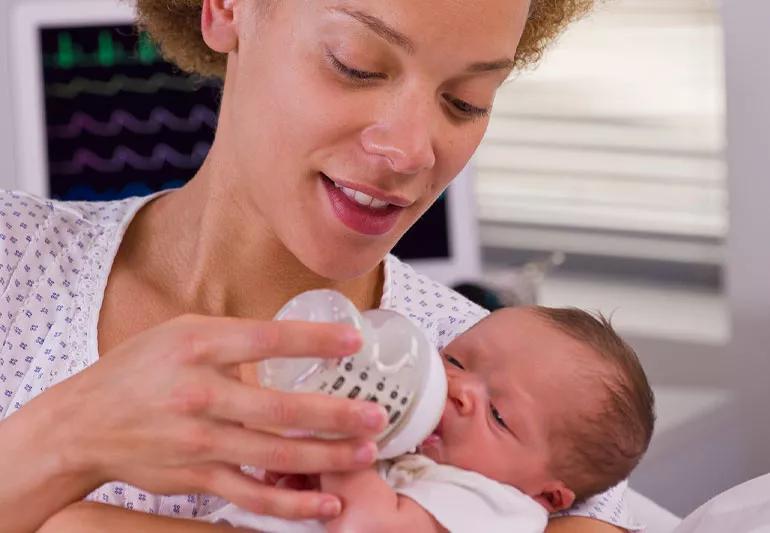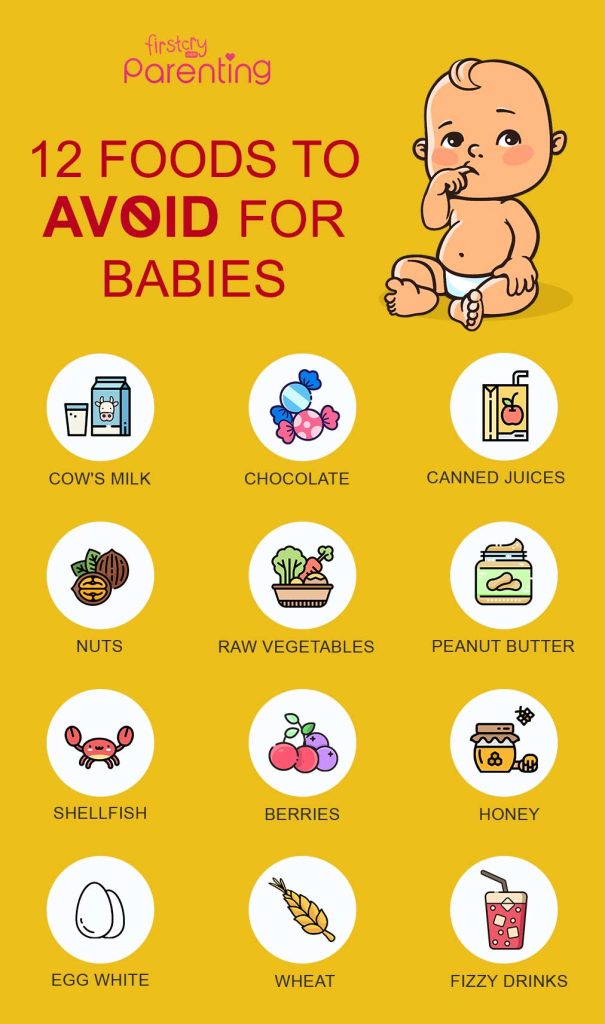Baby cereals are not strictly necessary for all infants. Many parents find them convenient and nutritious.
Parents often wonder if baby cereals are essential for their infants’ diet. Baby cereals can provide important nutrients like iron, which is crucial for a baby’s development. They are also easy to prepare and can be a good introduction to solid foods.
Some parents opt for homemade purees or other iron-rich foods instead. Each baby is different, and dietary choices should be tailored to their specific needs. Consulting with a pediatrician can help in making the best decision. Ultimately, the goal is to ensure the baby receives balanced nutrition for healthy growth.
Introduction To Baby Cereals
Baby cereals are often the first solid food given to infants. They provide essential nutrients that help in a baby’s growth and development. Parents frequently ask: Are baby cereals necessary? This blog post will delve into the historical background and current trends to answer this question.
Historical Background
Baby cereals have been around for many years. In the 1920s, parents started using them as a first food. These early cereals were made from rice or oats. They were easy to digest and considered safe for babies. Over time, more types of baby cereals were created, including those made from barley and wheat. These cereals became popular because they were fortified with iron and other nutrients.
During the mid-20th century, pediatricians recommended baby cereals as a first food. They believed cereals helped babies transition from milk to solid foods. This practice became a standard part of infant feeding.
Current Trends
Today, baby cereals come in many varieties. There are organic, gluten-free, and multigrain options. Parents now have more choices than ever. Many modern cereals also contain added vitamins and minerals. These additions aim to support a baby’s immune system and brain development.
Current trends show an increase in homemade baby cereals. Parents prefer to control the ingredients in their baby’s food. Homemade cereals can be made from simple grains like rice, oats, or quinoa. They are often blended with fruits or vegetables for added nutrition.
A table below shows the different types of baby cereals available today:
| Type | Key Features |
|---|---|
| Organic | No pesticides or chemicals |
| Gluten-Free | Suitable for babies with gluten sensitivity |
| Multigrain | Contains a mix of different grains |
Parents should consult their pediatrician when choosing a baby cereal. Each baby is different, and what works for one might not work for another. Always look for cereals that are easy to digest and packed with essential nutrients.
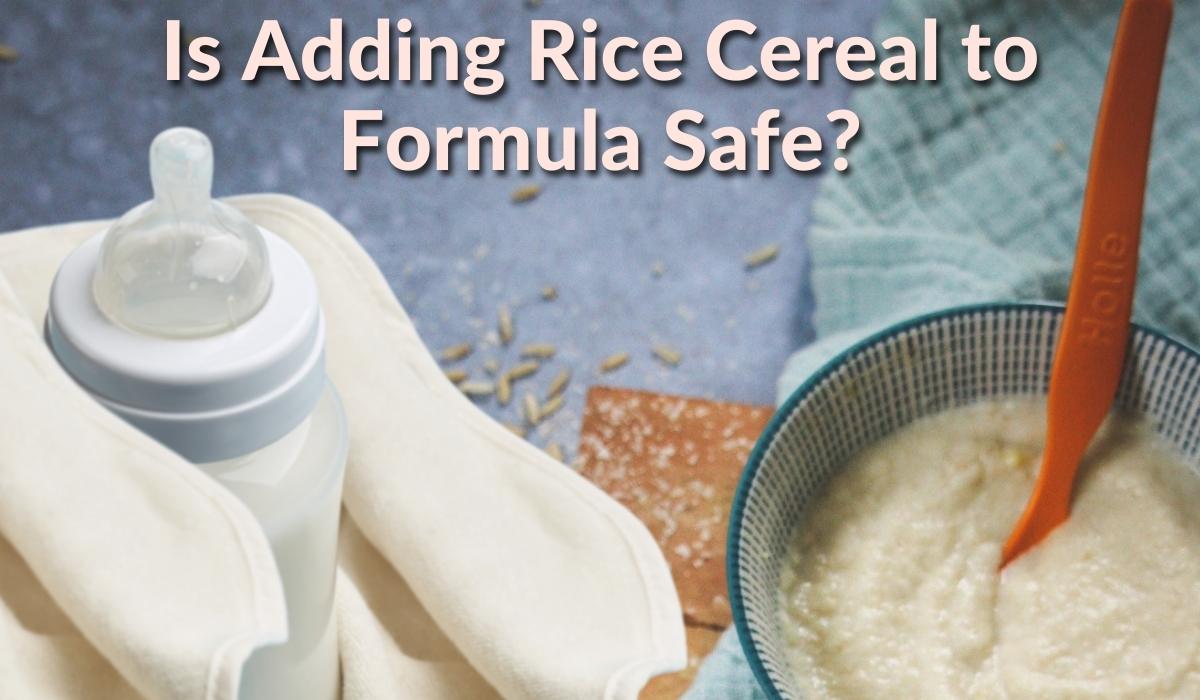
Credit: organicsbestshop.com
Nutritional Value
Baby cereals are often a baby’s first food. Parents choose them for their nutritional value. Understanding the key ingredients and health benefits can help you make an informed decision.
Key Ingredients
Baby cereals contain essential nutrients. These include:
- Iron – Crucial for brain development.
- Vitamins – Such as Vitamin B and E.
- Minerals – Like zinc and calcium.
- Fiber – Aids in digestion.
These ingredients support your baby’s growth. They ensure your child gets a balanced diet.
Health Benefits
Baby cereals offer many health benefits. They include:
- Supports Brain Development – Iron helps in cognitive development.
- Boosts Immunity – Vitamins strengthen the immune system.
- Promotes Healthy Bones – Calcium ensures strong bones.
- Aids Digestion – Fiber helps in smooth digestion.
Feeding baby cereals can provide these benefits. It ensures your baby grows healthily.
When To Introduce Baby Cereals
Introducing baby cereals can be a significant milestone in your child’s diet. Knowing the right time to start is crucial for their development. This section will help you understand when to introduce baby cereals and what signs to look for.
Recommended Age
Experts suggest starting baby cereals at around six months old. At this age, your baby’s digestive system is more developed. This allows them to process solid foods better. Before six months, breast milk or formula provides all necessary nutrients.
Signs Of Readiness
Look for specific signs to know if your baby is ready for cereals. These signs include:
- Your baby can sit up with minimal support.
- Your baby shows interest in food during mealtime.
- Your baby has good head control.
- Your baby opens their mouth when food approaches.
- Your baby can move food from a spoon to the throat.
Below is a table summarizing the signs of readiness for introducing baby cereals:
| Sign of Readiness | Description |
|---|---|
| Can sit up | Your baby can sit with minimal support. |
| Interest in food | Your baby watches you eat and reaches for food. |
| Head control | Your baby can hold their head steady. |
| Opens mouth | Your baby opens their mouth when food is near. |
| Moves food | Your baby can move food from a spoon to their throat. |
Types Of Baby Cereals
Baby cereals are one of the first solid foods introduced to infants. They are easy to digest and can be fortified with essential nutrients. Let’s explore the different types of baby cereals available.
Rice Cereal
Rice cereal is often the first cereal given to babies. It is gentle on a baby’s stomach and is less likely to cause allergies. Rice cereal is usually iron-fortified, which helps in the baby’s development.
| Advantages | Disadvantages |
|---|---|
| Easy to digest | Low in fiber |
| Low allergy risk | May contain arsenic |
Oatmeal And Barley
Oatmeal cereal is another popular choice. It is rich in fiber and helps in digestion. Oatmeal is also less likely to cause constipation compared to rice cereal.
- Rich in fiber
- Good for digestion
- Low allergy risk
Barley cereal is another healthy option. It has a nutty flavor and is packed with nutrients. Barley is also high in fiber and helps maintain a healthy digestive system.
- Rich in vitamins and minerals
- Good for digestion
- Nutty flavor
Homemade Vs. Store-bought
Parents often wonder whether to choose homemade or store-bought baby cereals. Both options have their own set of advantages and disadvantages. In this section, we’ll explore the pros and cons, and also compare the costs of homemade vs. store-bought baby cereals.
Pros And Cons
- Pros:
- Control over ingredients
- No preservatives
- Freshly made
- Cons:
- Time-consuming
- Requires cooking skills
- Storage can be tricky
- Pros:
- Convenient
- Long shelf life
- Fortified with nutrients
- Cons:
- May contain preservatives
- Less control over ingredients
- Can be expensive
Cost Comparison
| Type | Cost per Serving | Total Monthly Cost |
|---|---|---|
| Homemade | $0.20 | $6.00 |
| Store-Bought | $0.50 | $15.00 |
Making baby cereals at home can be more cost-effective. Although, it requires more effort. Store-bought cereals are convenient but often pricier. Balancing cost and convenience is key for many parents.
Allergies And Sensitivities
Introducing baby cereals can be a joyous milestone. However, it’s crucial to be aware of allergies and sensitivities that might affect your child. Babies have delicate systems, and certain ingredients can trigger reactions. Understanding common allergens and recognizing symptoms can help ensure your baby’s safety.
Common Allergens
Some ingredients in baby cereals are known allergens. Parents should be cautious of these:
- Wheat: Commonly found in baby cereals.
- Milk: Dairy-based cereals can trigger reactions.
- Soy: Often used in baby products.
- Nuts: Nut-based cereals can be risky.
- Eggs: Sometimes included as a binding agent.
Symptoms To Watch For
Allergic reactions can vary. Watch for these symptoms:
| Symptom | Description |
|---|---|
| Rashes | Red, itchy patches on the skin. |
| Swelling | Swollen lips, face, or tongue. |
| Vomiting | Frequent spitting up or vomiting. |
| Diarrhea | Loose or watery stools. |
| Breathing Issues | Wheezing or difficulty breathing. |
If your baby shows any of these symptoms, consult your pediatrician immediately. Early detection can prevent severe reactions and ensure a healthy start for your baby.
Alternatives To Baby Cereals
Many parents wonder if baby cereals are essential for their little ones. While baby cereals are convenient, there are several nutritious alternatives. These options can provide your baby with all the necessary nutrients.
Pureed Vegetables And Fruits
Pureed vegetables and fruits are excellent alternatives to baby cereals. They are packed with vitamins, minerals, and fiber. These nutrients are crucial for your baby’s growth and development.
- Carrots: Rich in Vitamin A, which supports healthy vision.
- Sweet potatoes: Provide Vitamin C and beta-carotene.
- Avocados: High in healthy fats and Vitamin E.
- Bananas: Great source of potassium and easy to digest.
- Apples: Provide dietary fiber and Vitamin C.
You can mix and match these purees to keep your baby’s meals exciting. Using fresh produce ensures your baby gets the best nutrients without added sugars or preservatives.
Baby-led Weaning
Baby-led weaning encourages self-feeding from the start. This method helps develop fine motor skills and independence. It can also make mealtime more enjoyable for both you and your baby.
Here are some easy-to-handle foods for baby-led weaning:
- Steamed broccoli florets: Easy to grasp and full of vitamins.
- Soft-cooked carrot sticks: Good source of beta-carotene.
- Chunks of ripe banana: Soft and sweet, perfect for tiny hands.
- Strips of avocado: Packed with healthy fats and easy to eat.
- Soft scrambled eggs: Provide protein and essential nutrients.
Always supervise your baby during meals to ensure safety. Baby-led weaning allows your baby to explore different textures and flavors. It can help foster a positive relationship with food from an early age.
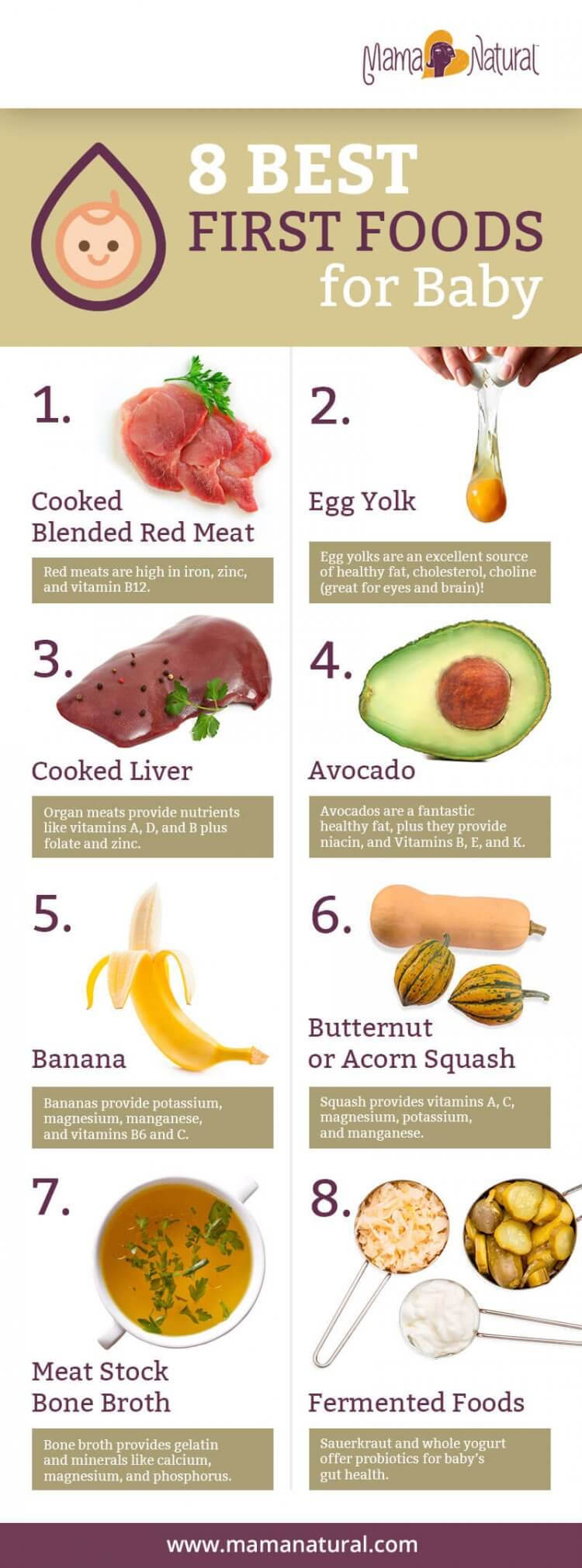
Credit: www.mamanatural.com
Expert Opinions
Parents often wonder if baby cereals are essential for their child’s diet. To provide clarity, we have gathered insights from experts. This section will explore advice from pediatricians and testimonials from parents.
Pediatrician Advice
Pediatricians have diverse opinions on baby cereals. Some recommend them for their iron content. Iron is crucial for baby’s growth and brain development. Others suggest starting with vegetables and fruits first. This helps babies get used to different tastes.
Dr. Jane Smith, a renowned pediatrician, says, “Baby cereals can be a good starting point. They are easy to digest and rich in nutrients.” Yet, she emphasizes a balanced diet. “Don’t rely solely on cereals. Introduce a variety of foods gradually,” she adds.
Here is a table summarizing the benefits and concerns:
| Benefits | Concerns |
|---|---|
| Rich in iron | May lack other nutrients |
| Easy to digest | Can lead to limited palate |
| Convenient | Possible added sugars |
Parent Testimonials
Parents also share varied experiences with baby cereals. Some find them convenient and nutritious. Others prefer homemade options for their babies.
Mary, a mother of two, says, “I started both my kids on baby cereals. It was easy and they loved it.” She appreciates the convenience and nutritional value.
On the other hand, John, a new dad, says, “We chose to make our own baby food. Fresh fruits and vegetables seemed better for us.” He believes in giving his baby a variety of flavors early on.
Here’s a list of common parent choices:
- Store-bought baby cereals
- Homemade vegetable purees
- Fresh fruit blends
- Mixed grain cereals
Parents often decide based on convenience, nutritional value, and personal preferences.
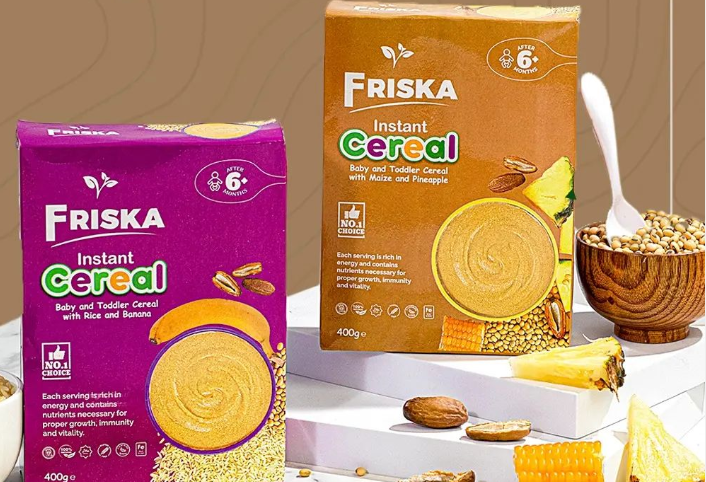
Credit: nutrition4kidsng.com
Frequently Asked Questions
Is It Ok Not To Give Baby Cereal?
Yes, it’s okay not to give baby cereal. Babies can get necessary nutrients from other foods like vegetables, fruits, and proteins. Always consult your pediatrician for personalized advice.
Do I Need To Use Baby Cereal?
No, baby cereal is not essential. Babies can start with pureed fruits, vegetables, or other soft foods. Consult your pediatrician.
What Is A Good Alternative To Baby Cereal?
A good alternative to baby cereal includes mashed fruits, pureed vegetables, and oatmeal. These options provide essential nutrients.
Does Baby Cereal Replace Feeding?
No, baby cereal does not replace feeding. It complements breast milk or formula, providing additional nutrients. Always continue regular feedings.
Conclusion
Choosing whether baby cereals are necessary depends on individual needs. Consult your pediatrician for personalized advice. Baby cereals can provide essential nutrients but aren’t the only option. Explore various healthy foods to ensure a balanced diet. Prioritize your baby’s nutritional needs and preferences for optimal growth and development.

